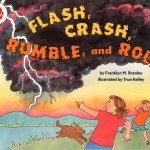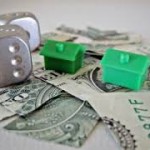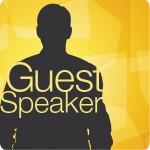
Readers & Thinkers: The 2002 Nobel Prize in Economics. Post Analysis
Posted by ludw1086 on Sep 6, 2012 in Readers & Thinkers | Comments Off on Readers & Thinkers: The 2002 Nobel Prize in Economics. Post AnalysisDear All,
My second choice won the Nobel in economics and I am happy for him,
since he was a long shot.
VERNON SMITH (Ph.D. in economics from Harvard) “for having established
laboratory experiments as a tool in empirical economic analysis,
especially in the study of alternative market mechanisms”
DANIEL KAHNEMAN (Ph.D. in Psychology from UC Berkeley) “for having
integrated insights from psychological research into economic science,
especially concerning human judgment and decision-making under
uncertainty”
I will briefly speak about both.
VERNON SMITH
I first learned about Vernon Smith as an undergraduate at the
University of California at Berkeley while writing a paper entitled
“Oligopolistic Interaction under Market Uncertainty.” Most of
economics is concerned with either theory or empirical testing of
theory on real data. Unlike physics or chemistry, it is very hard to
do controlled experiments, because economics, by it’s nature involves
the actions of human beings. Vernon Smith questioned that limitation
and believed that given the right structure and setting, economic
theories could be tested in controlled environments. In fact, I will
quote from a paper I wrote in 1990:
“Vernon E. Smith attempts to defend his assertion that the decision
behavior of suitably motivated individuals has important and
significant application to the development and verification of theories
of the economic system at large (Smith, 1976).”
Another experimental economist went on to say,
The advantage of experimental science has over other methods of
economic testing is that “adequate control can be maintained and
accurate measurement of relevant variables guaranteed.” (Wilde, 1980).
Researchers have used experimental economics to test a variety of
economic theories, including how price-setting duopolies behave, how
auction systems work in practice, and even how traders behave as
different information is made present.
It’s a pleasure to see such a “non-mainstream” field of economics win
the prize.
DANIEL KAHNEMAN
In my opinion, Dan is more of a psychologist, than an economist.
However, they don’t have a prize for that. I was trying to really
think of why he got this prize and here is what I was able to come up with.
Daniel Kahenman and A. Tversky wrote one paper that had an impact on
the field of Behavioral Economics. It’s a theoretical paper published
in Econometrica in 1979. It was entitled “Prospect Theory: An Analysis
of Decision under Risk”.
In standard expected utility (accepted economic paradigm prior to the
paper), there were a number of experimental anomalies documented,
including the famous “Allais Paradox”. Thus, when people were faced
with uncertain choices, they sometimes did not behave according to
expected utility theory in laboratory experiments. These two men
proposed a different utility function (loss aversion) that could better
explain some of these “violations of expected utility theory”. In this
sense, they combined psychology and economics or “experimental
evidence” and theory.
In essence, Dan won for one paper, and the Nobel committee left out
Tversky, but that’s because he died in 1996 (and you can’t win if
you’re dead). And maybe the Nobel committee really wanted to get this
obscure field out of the way by hitting two birds with one stone
(although one bird was technically hit in 1996).
Either way, this year’s prize went to some people that brought
experimental evidence into the forefront of economics and allowed for
the straightforward testing of various economic theories.
Sincerely
Ludwig
October 9, 2002






